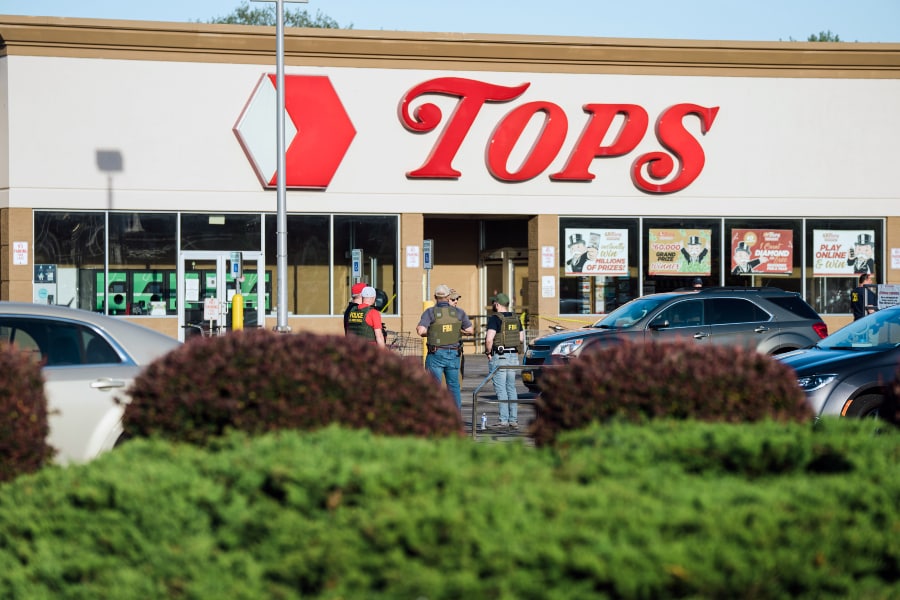
What do most mass shooters have in common? They bought guns legally
From 1966 to 2019, 77% of mass shooters obtained the weapons they used in their crimes through legal purchases
 Police and FBI investigators at the scene of Saturday’s mass shooting at the Tops Friendly Market supermarket in Buffalo, N.Y., May 16, 2022. From 1966 to 2019, 77% of mass shooters obtained the weapons they used in their crimes through legal purchases. Image: Gabriela Bhaskar/The New York Times
Police and FBI investigators at the scene of Saturday’s mass shooting at the Tops Friendly Market supermarket in Buffalo, N.Y., May 16, 2022. From 1966 to 2019, 77% of mass shooters obtained the weapons they used in their crimes through legal purchases. Image: Gabriela Bhaskar/The New York Times
WASHINGTON — Of all the wrenching similarities between the massacres at Marjory Stoneman Douglas High School in Parkland, Florida, the Tree of Life synagogue in Pittsburgh, the Walmart in El Paso, Texas, and the Tops supermarket in Buffalo, New York, one stands out most starkly: Each gun used was purchased legally.
From 1966 to 2019, 77% of mass shooters obtained the weapons they used in their crimes through legal purchases, according to a comprehensive survey of law enforcement data, academic papers and news accounts compiled by the National Institute of Justice, the research wing of the Justice Department.
In upstate New York a few months ago, the 18-year-old suspect in the Buffalo shooting walked into Vintage Firearms in sleepy Endicott, passed an instant background check without a glitch and bought a used Bushmaster XM-15 semi-automatic rifle, a copy of the ubiquitous AR-15 used in many other mass shootings.
The suspect, Payton Gendron, had recently been required to undergo psychological evaluation after making menacing, violent comments to high school classmates, but the episode was not enough to set off the state’s red flag law, which bars the mentally ill from buying weapons.
Then he went home, borrowed his father’s electric drill, and removed a restraining bolt, required by state law, that limited its capacity to a 10-round clip. That modification allowed him to load multiple 30-round magazines, making it easier for him to hunt, target and kill Black people, according to a manifesto he posted online.
©2019 New York Times News Service







